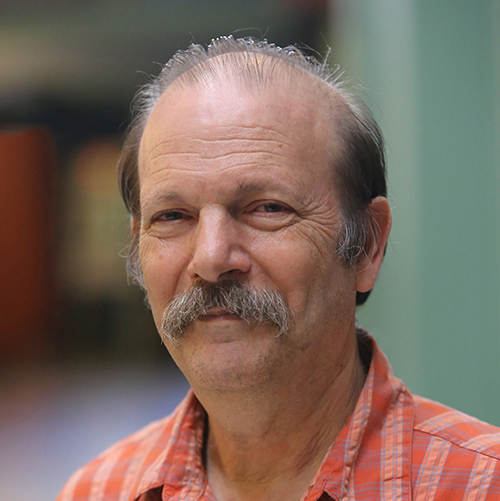Previous Talks
Academic Year 2022/2023
-

Moshe Vardi (Rice University): Artificial Intelligence: Ethics Versus Public Policy
9 November 2022, 16:30 - 18:00Recording: Zoom Recording
Abstract: Over the past decade Artificial Intelligence, in general, and Machine Learning, in particular, have made impressive advancements, in image recognition, game playing, natural-language understanding and more. But there were also several instances where we saw the harm that these technologies can cause when they are deployed too hastily. A Tesla crashed on Autopilot, killing the driver; a self driving Uber crashed, killing a pedestrian; and commercial face-recognition systems performed terribly in audits on dark-skinned people. In response to that, there has been much recent talk of AI ethics. Many organizations produced AI-ethics guidelines and companies publicize their newly established responsible-AI teams. But talk is cheap. "Ethics washing" — also called “ethics theater” — is the practice of fabricating or exaggerating a company’s interest in equitable AI systems that work for everyone. An example is when a company promotes “AI for good” initiatives with one hand, while selling surveillance tech to governments and corporate customers with the other. I will argue that the ethical lense is too narrow. The real issue is how to deal with technology's impact on society. Technology is driving the future, but who is doing the steering? -

Ludo Waltman (Leiden University): Are we all biased? The complexity of the diversity puzzle
19 April 2022, 16:00 - 17:30Abstract: Biases in the research system against underrepresented groups of researchers (e.g., against women or ethnic minorities) are extensively being studied and debated. Such biases are often seen as one of the causes of the lack of diversity in many research fields, while at the same time the lack of diversity may further reinforcesuch biases. In this talk I will analyze how biases are being studied and how studies of biases inform policy initiatives aimed at improving diversity and inclusion in the research system. I will present a number of different perspectives taken in discussions about biases in the research system, and I will point out some of the challenges in developing a coherent understanding of these biases. At a meta level, I will reflect on the possibility that we are all biased and that, as a result, our studies of biases in the research system may also be biased themselves. From a more practical point of view, I will discuss ongoing initiatives aimed at making the scholarly publishing system more diverse and inclusive, and I will reflect on tensions between these initiatives and other agendas aimed at improving and reforming scholarly publishing. -

Isabelle Collet (University of Geneva): Digital Technology and Gender Equality: A Challenge for Higher Education
14 February 2022, 16:00 - 17:30Recording: Zoom Recording
Abstract: Digital technology is playing an increasing role in our society, but women are underrepresented. Today, less than 15% of computer science students in higher education in most European countries are women. The Covid 19 pandemic has highlighted the importance of digital technology in daily life and the specific challenges faced by women in times of crisis, including in education and research. This quasi non-gender mix of the field has consequences not only on gender equality in employment, but also on the inclusiveness and performance of digital applications. The great uniformity of the population of developers and managers (white men from the middle or upper classes) tends to make the needs and characteristics of other populations, especially women, disappear. Can we continue to be satisfied with a technical world designed, developed, installed and maintained by a population that is more than 80% male? How can we imagine a more inclusive digital world? The higher education can close the gender gap: it is not too late and not everything happens in primary school! This communication will include: - a historical review of how the field became so male and why it keeps so; - a descriptions of practices: those that are not so « good »... and those that have proven to be effective.